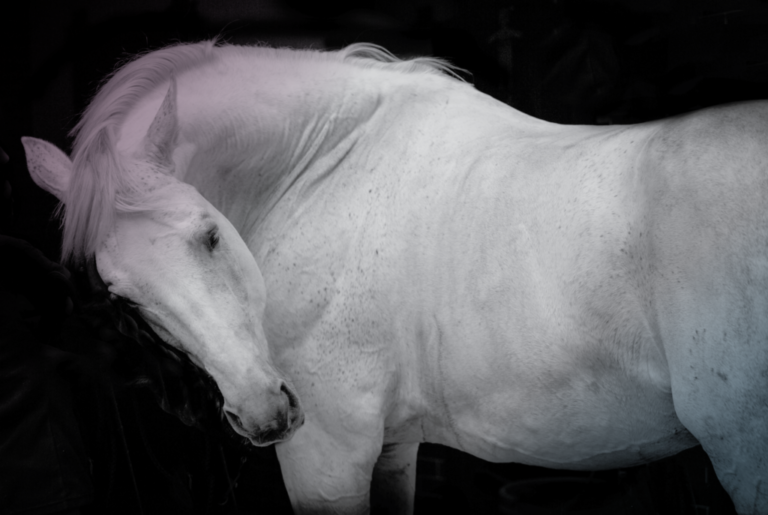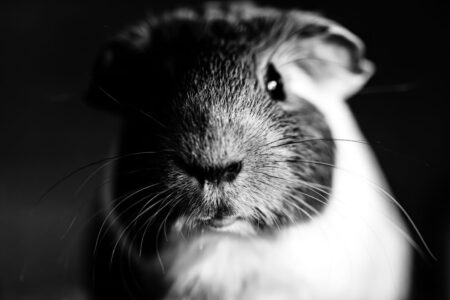We all know people expertise despair, thought of a significant temper dysfunction, however do horses? Sure, proof signifies that they’ll expertise and endure from despair. Home horses might reside in a state of persistent stress, relying on their bodily well being, dwelling preparations, social interactions, kind and period of labor, coaching strategies used on them, and even their feeding schedule.
Right here, we’ll overview the pioneering research that recognized despair in horses. We’ll study a number of the causes, checklist indicators to observe for, and provides tips about the best way to assist alleviate equine despair.
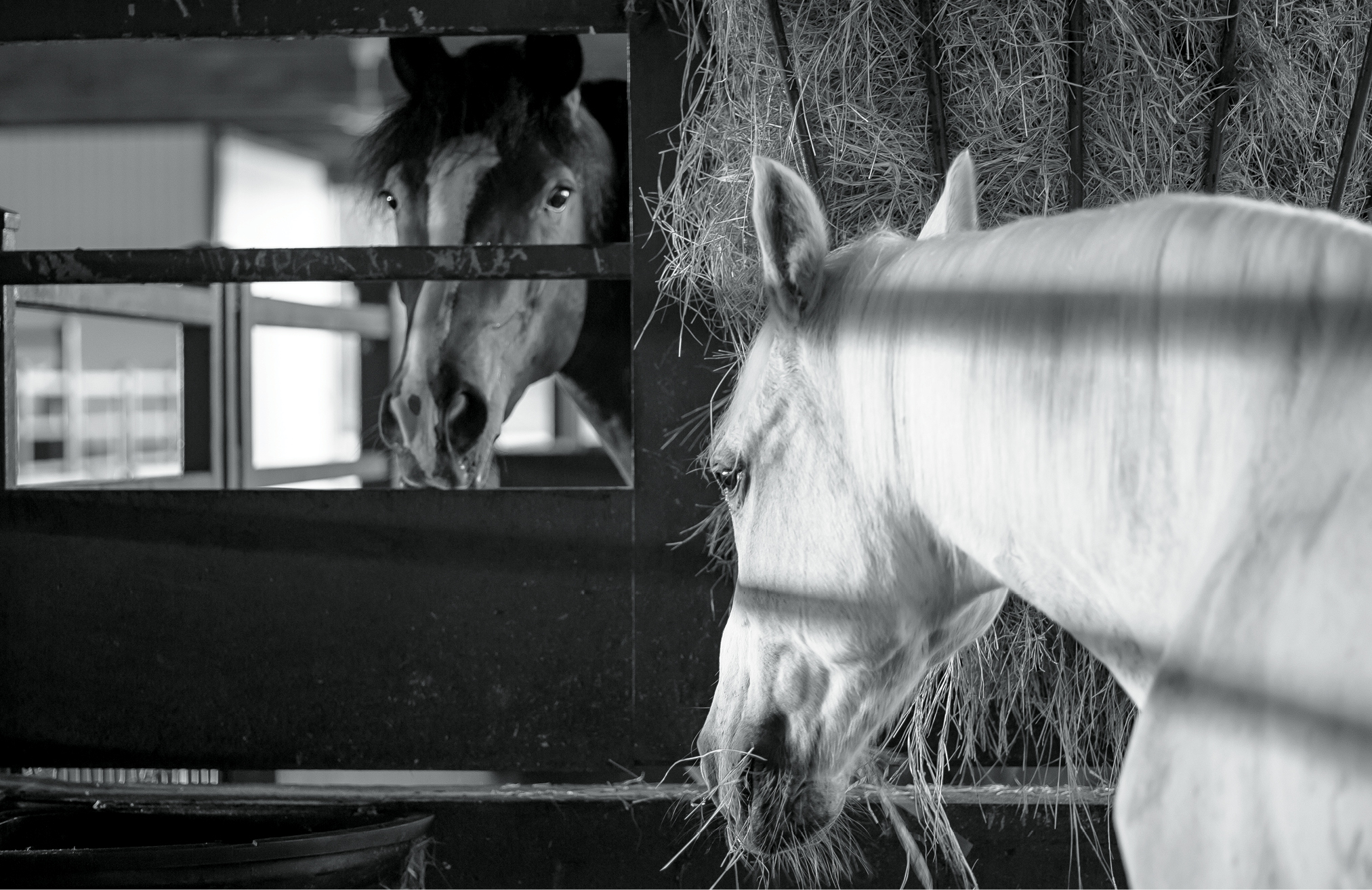
Research Finds Proof
A research in France evaluated home horses for indicators of despair by evaluating their conduct to that exhibited throughout depressive states in people. For six months, researchers noticed the spontaneous conduct of 59 working horses of their dwelling atmosphere, specializing in bouts of immobility through which the horses displayed atypical posture.
The research additionally evaluated the horses’ responsiveness to their atmosphere and their ranges of hysteria, plus measured the quantities of the stress hormone cortisol of their blood.
A mixture of breeds and sexes, the horses had been from three driving colleges; all had the identical kind of stabling, feed, and work parameters. The research centered on two parts—the spontaneous expression of “behavioral despair” and unresponsiveness to quite a lot of environmental stimuli (tactile/visible, human/non-human).
Researchers recorded all behaviors, giving particular consideration to motionless moments through which they acknowledged a specific posture, termed “withdrawn,” as distinctly completely different from different typical stances.
Horses exhibiting the weird “withdrawn” posture stood motionless, with open eyes, stretched necks (open jaw-neck angle), and with the neck at about the identical degree because the again. That posture differs from that of a horse observant of his environment, whose neck is held larger and whose ears transfer inquisitively.
It additionally differs from the posture of a resting horse, who relaxes his muscle groups, usually cocks/relaxes one hind leg, rotates ears laterally, permits eyelids and lips to droop, and holds his neck such that it slopes decrease and rounder.
A depressed horse’s open-eyed, boring, unfocused gaze and motionless head and ears recommend “behavioral despair.” In comparison with “non-withdrawn” horses from the identical secure, the withdrawn horses within the research appeared extra detached and unresponsive to stimuli of their dwelling atmosphere, but reacted extra emotionally to difficult conditions.
All these traits are much like some elements of depressive states in people and different animals.
Twenty-four % of the 59 horses within the research offered, not less than as soon as, the withdrawn posture of stretched neck, boring open-eyed gaze, and motionless head and ears, as much as 4 instances every in half-hour. Mares had been over-represented within the findings, with one-third of mares within the research presenting this depressive syndrome.
Causes of Despair
Sadly for home horses, many components can result in persistent stress, and long-term publicity to inescapable or repeated stressors can result in despair. Any of the next circumstances, or a mix of them, could also be on the root of a horse’s stress and subsequent despair.
[RELATED: EFFECTS OF SOCIAL STRESS]
• Ache. A particularly widespread stressor, ache can dramatically have an effect on a horse’s emotional state. It might even have a carry-over impact, as it will possibly result in the imposition of stall relaxation. This restriction retains horses from exercising, socializing, and grazing—which may then result in additional stress.
• Social isolation. In line with Prof. Robert Sapolsky, a neuroscientist at Stanford College, one of many main causes of stress to social animals (like horses) is social isolation. A horse dwelling alone, remoted, or stabled for lengthy durations, is more likely to change into chronically confused and due to this fact extremely prone to stress-related sicknesses and despair.
• Confinement. Horses have developed to journey as much as 100 miles a day, so it’s unnatural for them to be confined in a small space, unable to maneuver about and graze. Thus it’s no coincidence that when stabled for lengthy durations, they might begin performing stereotypic behaviors like windsucking or weaving in an try to deal with the frustration of being unable to maneuver freely.
• Harsh coaching. Intense and/or overly extended train (whether or not in coaching or competitors) may cause bodily stress. Punishment and bodily restraints additionally put monumental pressure on horses each mentally and bodily. Harsh or coercive coaching strategies make horses terrified of trainers and their atmosphere, which ends up in stress
• Transport. A number of research have proven that being transported may even enhance the chance of colic. Along with being confined and unable to maneuver, trailered horses could also be uncovered to extra-cramped areas, extra warmth/chilly, poor air flow, slippery flooring, and poor drivers.
• Boredom. Horses are clever creatures that want psychological stimulation. Bored horses simply change into pissed off and confused. These stalled for lengthy durations with nothing to do, or stored in a flat, boring paddock, or allowed little or no train can change into confused and depressed, probably creating a spread of behavioral points.

• Unpredictability. It’s necessary for horses, as prey animals, to really feel secure; if their atmosphere modifications repeatedly, they might by no means really feel secure sufficient to utterly calm down. For instance, unfamiliar stables, new horses coming and going, surprising noise, modifications to feeding schedules, various handlers, and inconsistent coaching strategies can all go away horses stressed and anxious as to what might occur subsequent.
• Careworn handlers or different horses. The emotional state of surrounding individuals and equines can adversely have an effect on a horse. For instance, if one horse in a gaggle is overly tense or aggressive, it will possibly result in issues throughout the herd and trigger stress amongst different members of the group.
• Feeding. Horses have developed to “trickle feed,” grazing as they roam for as much as 18 hours a day. Meaning three massive grain meals a day and one small hay web in a single day is not an ample feeding routine, as it will possibly go away horses hungry, confused, and susceptible to creating gastric ulcers.
Indicators to Look For
You may spot despair in a horse should you search for the indicators from the research described earlier: a level-neck “withdrawn” stance, boring stare, motionless head and ears, and lowered reactions to people but elevated reactiveness to new stimuli.
A withdrawn horse, bored with his atmosphere, can also stand together with his head towards the wall of his stall.
Different potential indicators to observe for embody:
• Stereotypies like cribbing or weaving.
• Unpredictable behaviors.
• Lengthy durations of immobility.
• Decreased urge for food/modifications in weight.
• Unwillingness to work.
• Lack of sleep.
• Elevated susceptibility to an infection.
• Poor muscle improvement.
• Elevated concern, nervousness, or spookiness.
• Avoiding different horses.
In the event you spot any alarming modifications in your horse’s perspective or conduct, schedule a radical veterinary checkup to rule out bodily issues. Horses are extremely prone to a spread of bodily points if their despair goes untreated and should develop gastric ulcers or colic if confused even for less than a brief time frame.
[RELATED: HORSE GUT HEALTH]
Choices to Alleviate Despair in Horses
In case your horse is depressed, easy modifications in administration to cut back his stress and/or boredom can considerably enhance his outlook on life. Strategy altering his way of life with the mindset of enabling him to guide a extra pure life whereas additionally conserving to some agency routines.
In case your horse now lives alone, present him with a secure or pasture companion. In the event you can’t afford to maintain one other horse, maybe prepare for a horse belonging to another person to reside together with your horse. In the event you can’t tackle one other horse, then a donkey, goat, or different barnyard animal may help hold your horse firm.
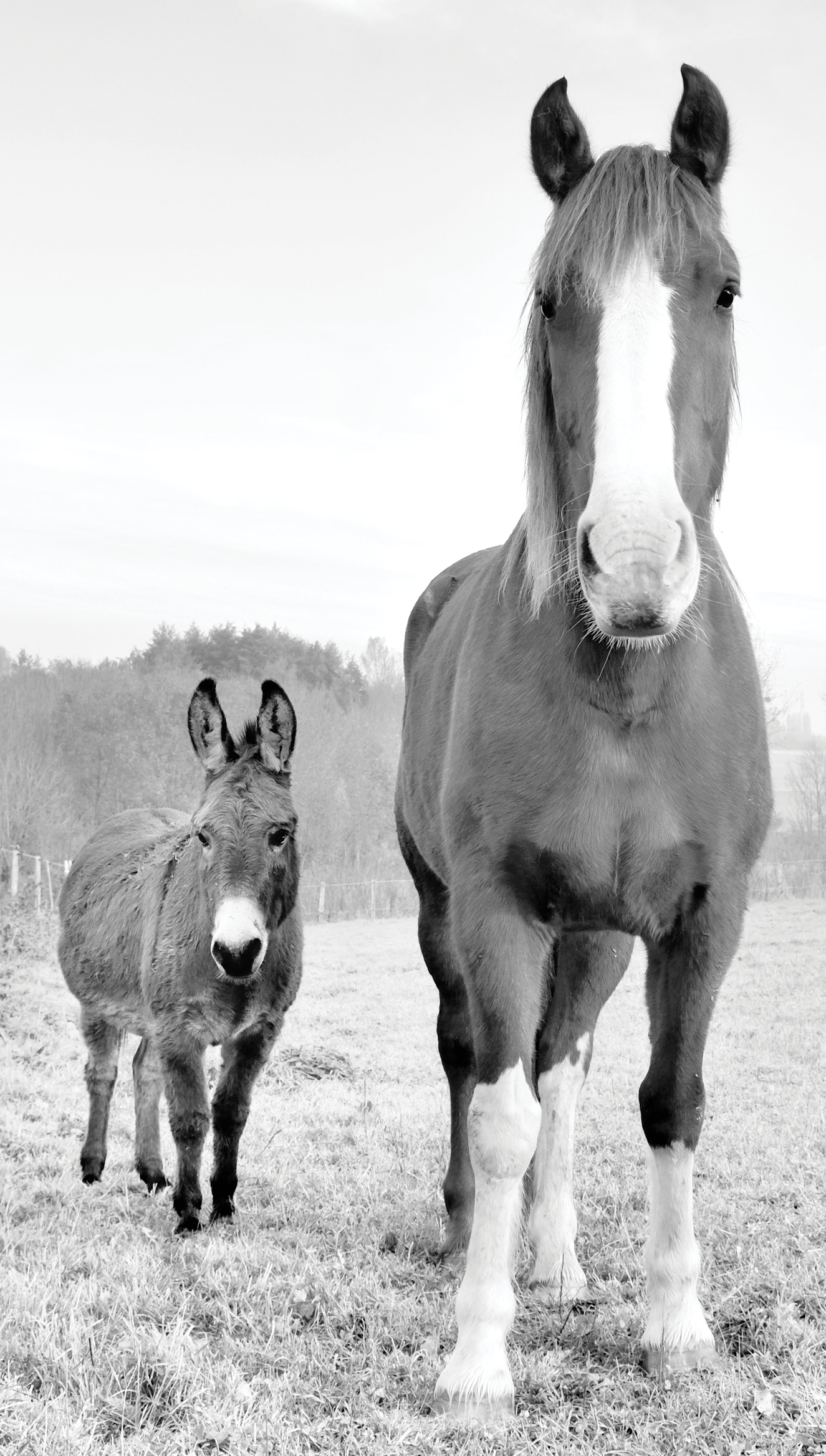
If, however, your horse reveals indicators of stress due to an aggressive companion that stops him from stress-free or consuming, take all vital steps to separate them sufficient that your horse feels secure.
Offering turnout or growing your horse’s turnout time may also do wonders for despair. Analyze what it’ll take to make this change-—you’ll have to regulate your schedule, pay an worker, swap favors with a pal, and even transfer to a different secure that provides turnout. That is such a vital part in a horse’s life that it needs to be a prime precedence.
Entry to forage always additionally goes a good distance towards enhancing a horse’s emotional state. If he can’t be out on pasture on a regular basis, regulate your feeding routine (maybe with slow-feed nets) in order that he may be nibbling all through the day, as nature supposed. Any approach you’ll be able to enrich his atmosphere and prolong his “chew time” might enhance his temper.
Lastly, assess your driving and coaching program. Does it expose your horse to harsh strategies, excessively lengthy periods, unrealistic expectations, or environmental challenges similar to excessive warmth or unhealthy footing? Any of these components—or mixture of them—can discourage him, making him averse to performing and even being dealt with.
